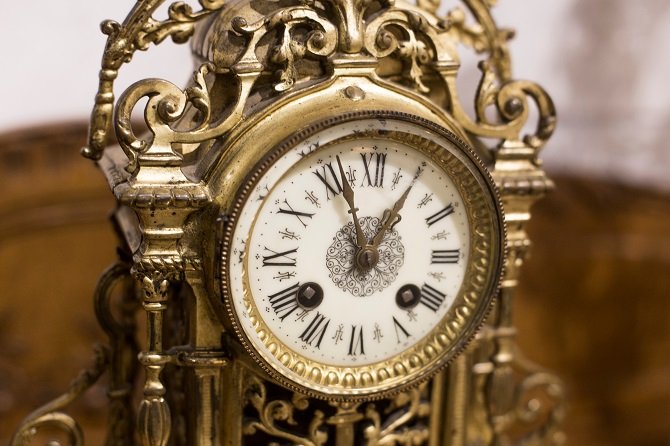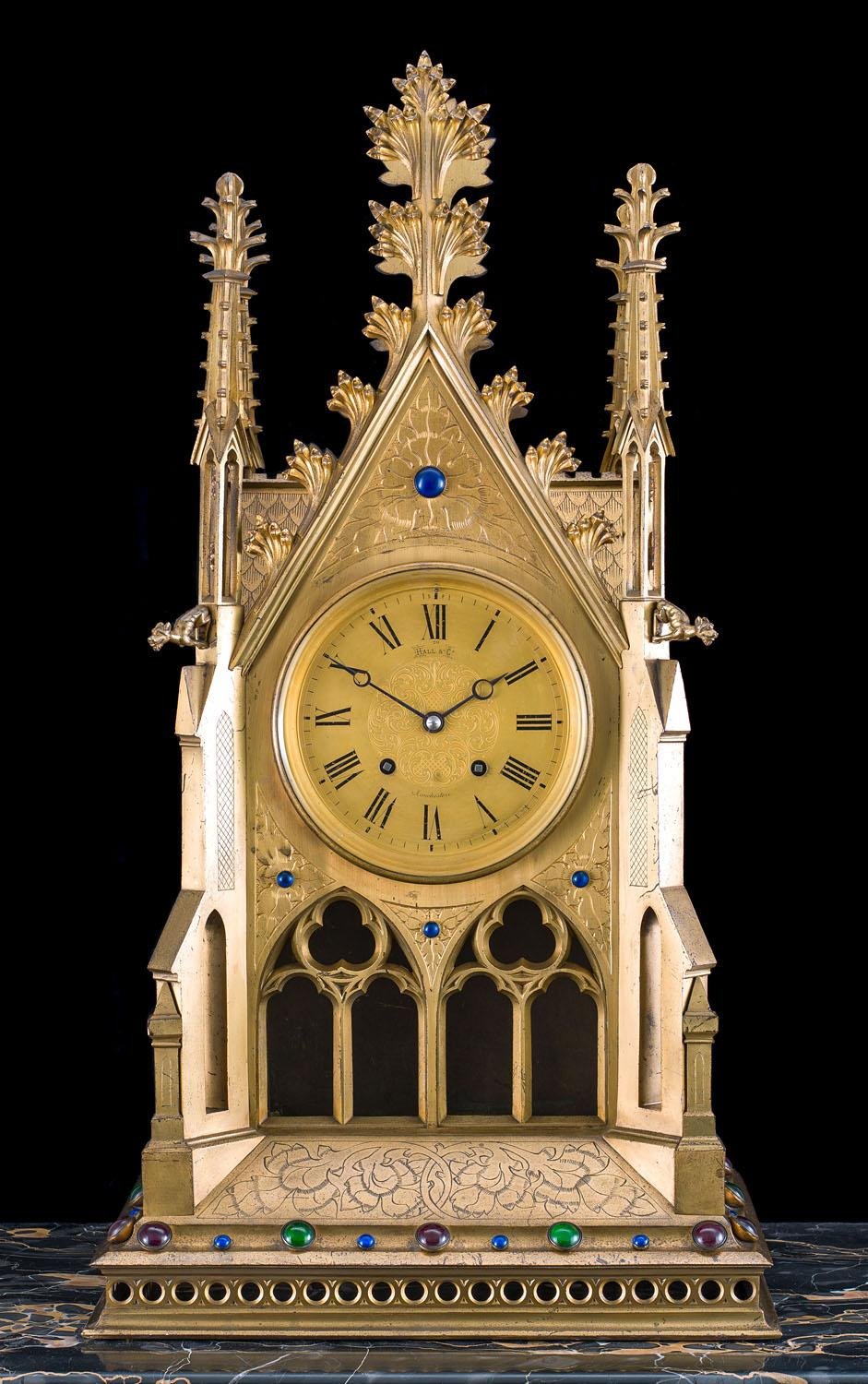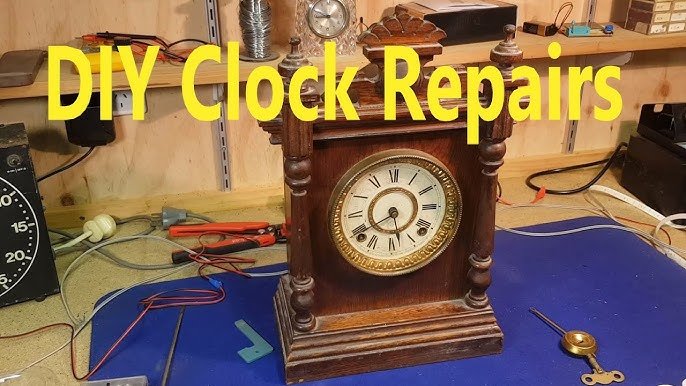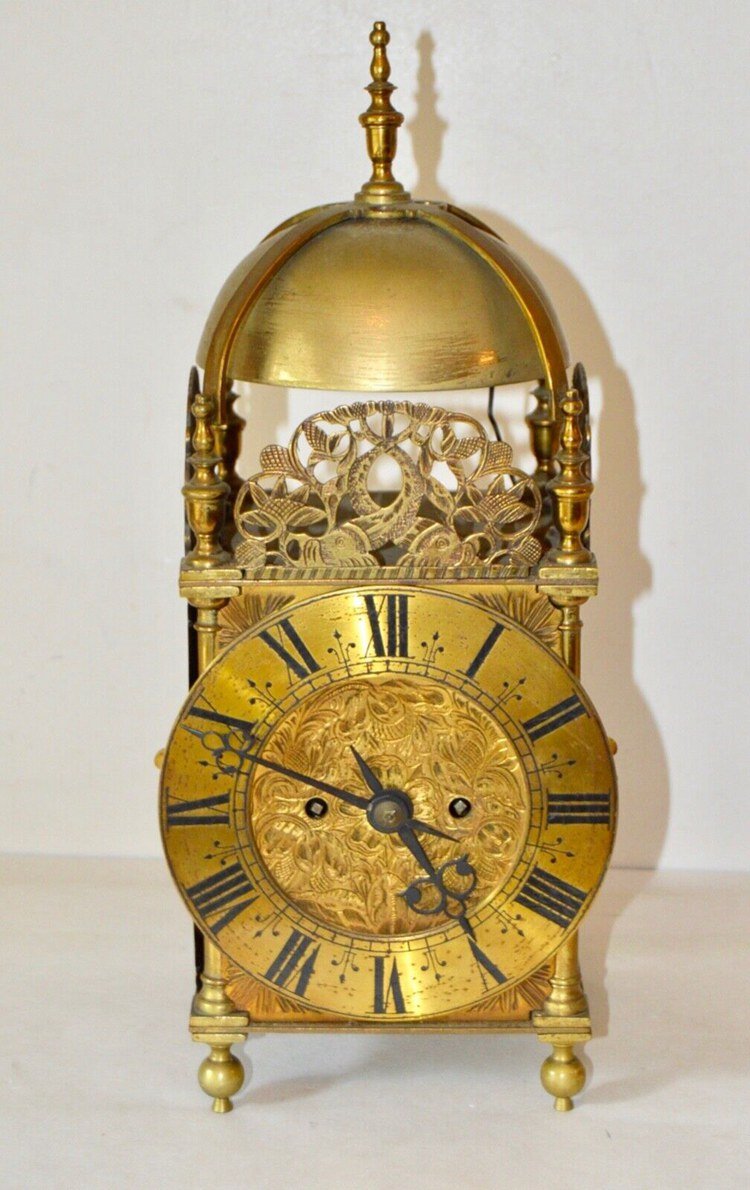Antique clocks are beautiful, intricate pieces of history, but like all mechanical devices, they can experience issues over time. Understanding common problems and knowing how to address them can keep your clock running smoothly. Here are the most frequent issues faced by antique clocks and tips on how to resolve them.
1. Clock Losing or Gaining Time
One of the most common problems with antique clocks is incorrect timekeeping. The clock may run too fast or too slow due to various reasons.
- Worn Gears: Over time, the gears may wear down, causing the clock to lose or gain time.
- Pendulum Length: Adjusting the pendulum length can help regulate the time. If the clock runs fast, slightly lengthen the pendulum. If it runs slow, shorten it.
In summary, adjusting the pendulum or having worn gears repaired can help restore accurate timekeeping.
2. Clock Not Striking Correctly
Many antique clocks have striking mechanisms that chime on the hour or quarter-hour. If your clock isn’t striking correctly, it may be due to:
- Misalignment: The striking mechanism may have fallen out of sync with the clock’s time.
- Worn Strike Levers: Over time, the strike levers can wear down or become bent, preventing proper chiming.
In short, resetting the striking mechanism or replacing worn levers can restore the clock’s chiming function.
3. Pendulum Stops Swinging
A pendulum clock requires consistent swinging to keep time. If the pendulum stops, it could be due to:
- Clock Not Leveled: Antique clocks must be perfectly level to work properly. An uneven surface may cause the pendulum to stop.
- Lack of Proper Movement Lubrication: Friction in the clock’s movement can stop the pendulum. Regular lubrication by a professional can solve this issue.
To sum up, ensure the clock is level and well-lubricated for smooth pendulum movement.
4. Clock Won’t Wind
If you cannot wind your clock, the issue might be with the winding mechanism or the mainspring.
- Worn Out Mainspring: A broken or overly tight mainspring can make winding difficult.
- Damaged Winding Arbor: The winding key may not engage properly if the arbor (the central shaft of the clock) is damaged.
In brief, checking the mainspring or having the winding mechanism inspected by a professional can fix the issue.

5. The Clock Stalls or Stops Completely
Sometimes, an antique clock will simply stop running without any clear cause. Common reasons include:
- Dirty Mechanism: Dust and grime inside the movement can cause friction, leading the clock to stop.
- Improper Lubrication: Clocks need regular lubrication to function properly. Dry gears can cause the clock to stall.
In short, a thorough cleaning and proper lubrication can resolve this issue and get the clock running again.
6. Worn Out Bearings or Bushings
Bearings and bushings are essential for the smooth operation of a clock’s gears. Over time, these parts can wear out.
- Signs of Wear: If you notice grinding or squeaking noises, the bearings or bushings may need replacement.
- Solution: Have a professional clockmaker replace the worn parts to prevent further damage to the mechanism.
In summary, replacing worn bearings and bushings will ensure the clock runs smoothly.
7. Hands Are Loose or Stuck
Loose or stuck hands can cause your clock to stop working properly. This can occur due to:
- Misalignment: The hands may have been bent or pushed too tightly against the dial.
- Loose Center Nut: The nut holding the hands in place may have come loose over time.
In short, checking the alignment and tightening the center nut can solve this problem.
8. Winding Key Stuck or Difficult to Turn
If the winding key becomes stuck or hard to turn, it may be due to:
- Rust or Dirt in the Mechanism: Rust or dirt can build up, making it difficult to turn the key.
- Mainspring Tension: The mainspring may have too much tension, making winding harder than usual.
In summary, cleaning the winding mechanism or releasing some mainspring tension can make the key easier to turn.
9. Clock Chimes at the Wrong Time
If your clock chimes at the wrong time, it may have fallen out of synchronization.
- Misaligned Gears: This can happen if the gears controlling the chime are not aligned with the timekeeping gears.
- Solution: Reset the clock’s chime by turning the minute hand until the correct chime strikes.
In short, realigning the gears or resetting the chime mechanism can fix this issue.
10. Broken Glass or Damaged Case
Physical damage, such as broken glass or a damaged case, can happen to antique clocks over time.
- Replace the Glass: Find a specialist who can replace the glass with one that matches the original design.
- Repair the Case: For wooden cases, minor scratches or dents can often be polished out, while more significant damage may require restoration.
To sum up, professional restoration can maintain the clock’s appearance and protect its value.
Conclusion
Antique clocks, though beautiful, require regular care and maintenance to function properly. Addressing common issues such as incorrect timekeeping, stalled movements, and worn parts can extend the life of your clock. If you encounter more complex problems, don’t hesitate to seek professional help. With the right care, your antique clock can continue to be a timeless treasure for generations.





**mind vault**
mind vault is a premium cognitive support formula created for adults 45+. It’s thoughtfully designed to help maintain clear thinking
**prostadine**
prostadine is a next-generation prostate support formula designed to help maintain, restore, and enhance optimal male prostate performance.
**gl pro**
gl pro is a natural dietary supplement designed to promote balanced blood sugar levels and curb sugar cravings.
**breathe**
breathe is a plant-powered tincture crafted to promote lung performance and enhance your breathing quality.
I don’t think the title of your article matches the content lol. Just kidding, mainly because I had some doubts after reading the article. https://accounts.binance.com/ro/register-person?ref=HX1JLA6Z
Thanks for sharing. I read many of your blog posts, cool, your blog is very good. https://accounts.binance.info/bn/register?ref=WTOZ531Y
Thank you for your sharing. I am worried that I lack creative ideas. It is your article that makes me full of hope. Thank you. But, I have a question, can you help me?
Who doesn’t love a free bonus? jiligamesfreebonus actually delivers! Got some extra playtime thanks to them. Definitely worth checking out! Head over to: jiligamesfreebonus
Hey guys, just wanted to say 777slotsbet is where I go for some serious slot action. The site’s easy to use and they’ve got a ton of games. Definitely worth checking out! 777slotsbet
Bereits eine Woche später – noch vor dem deutschen Kinostart am 23.
Die deutschsprachigen Darsteller synchronisierten ihre Rollen durchgängig selbst.
Die deutsche Synchronbearbeitung entstand bei Interopa Film in Berlin.
Zwar gab es bereits zwei Verfilmungen unter dem
Titel, doch die eine war ein Fernsehfilm (1956) und die andere eine Parodie (1967).
Craig interpretierte Bond (noch) nicht als überzeugten Doppelagenten mit der Lizenz zum Töten. Doch auch der durch Remmington Steele
bekannt gewordene Brosnan hatte nach vier Episoden trockenen Wodka-Martinis die Nase vom
Doppelagenten voll und so ging die Suche nach einem Darsteller erneut los.
Als Metro-Goldwyn-Mayer letztendlich die Rechte für die Casino-Royale-Adaption von 1967 erwarb,
bekam das Studio auch die Rechte an dem Fernsehfilm.
References:
https://online-spielhallen.de/einfach-und-sicher-ihr-leon-casino-login-guide/
Durchsuchen Sie alle von Frank Casino angebotenen Boni,
einschließlich jener Bonusangebote, bei denen Sie keine Einzahlung vornehmen müssen,
und durchstöbern Sie auch alle Willkommensboni, die Sie bei Ihrer ersten Einzahlung erhalten werden. Deshalb ist es unserer Meinung nach ratsam,
nach einem besseren Online Casino zu suchen, in dem Sie beruhigt spielen können. Frank Casino bietet
sofortigen Kundensupport über dasselbe Sicherheitspanel, sodass sie schnell
reagieren können, wenn sie etwas Verdächtiges sehen. Genauso
einfach ist es, die Dinge sicherer zu machen. Die Aufrechterhaltung eines sicheren Zugangs gibt Ihnen Sicherheit, da Sie alles erleben, was Frank
Casino bietet. Frank Casino bietet Schritt-für-Schritt-Anleitungen und reaktionsschnellen Kundensupport, der Ihnen bei der Installation und Einrichtung hilft,
wenn Sie auf Probleme stoßen.
Neue Spieler können einen 100% Match bis zu 500
€ ergattern, plus einen zusätzlichen Schub an Freispielen – das
stimmt, du kannst drehen und noch mehr gewinnen, ohne einen Cent auszugeben. Mit einer
atemberaubenden Auswahl an Spielautomaten, die dein Herz höher schlagen lassen wird, kannst du mühelos Hits
von NetEnt, Play’n GO, Evolution Gaming und Pragmatic Play spielen. Von geilen Slots
bis zu den klassischen Tischspielen – alles da!
Verdiente Punkte können gegen Freispiele, Cashback oder exklusive
Turniereinträge eingetauscht werden. Behalten Sie die aktuellen Werbeaktionen von Frank Casino im Auge,
um Updates zu erhalten, da saisonale Kampagnen die
Belohnungen für beide Gruppen vorübergehend erhöhen können. Bevor Sie
irgendetwas zustimmen, stellen Sie sicher, dass Sie alle Allgemeinen Geschäftsbedingungen sorgfältig lesen.
References:
https://online-spielhallen.de/powerup-casino-freispiele-ihr-schlussel-zum-sieg/
Your point of view caught my eye and was very interesting. Thanks. I have a question for you.
While these are often exclusive orseasonal offers (so keep your eyes
peeled!), they’re practically theholy grail for many players.
Online casinos, especially those as genuinelyplayer-focused as RocketPlay casino,
are constantly dishing out enticingpromotions designed to reel in new players and, just as importantly,give
a little love back to their loyal ones. This isn’t just a handful
of gamesthrown together; it’s a massive, ever-expanding universe ofentertainment designed
to cater to every single type of player, trulycementing its
place as a leader for those who want to Play & Win Big.
Let’s be real, finding an online casino that truly gets you
can be abit of a quest, can’t it? Are you an Aussie gambler who’s been on the hunt for thatperfect online casino experience?
This gives players the assurance that the casino operates under strict legal guidelines.
To grab your offers, head to rocket casino login and check
the promo section. It’s quick, fun, and rewards real play —
no tricks. You’ll score a 100% bonus plus free spins on your first
deposit, and then a 200% match on the second. Whether you’re here for
pokies, live dealer tables, or chasing VIP perks, Rocketplay keeps things sharp
and fair.
References:
https://blackcoin.co/where-luxury-meets-excitement-pullman-reef-hotel-casino/
Split your funds into sessions say, $100 for a week and stop when it’s
gone. If a casino hides its licensing info or has sketchy reviews, steer clear.
Look for seals from eCOGRA or iTech Labs, which
certify fair gaming. PayID is a game-changer for Aussies, linking your bank account for
instant deposits and withdrawals. Getting money in and out quickly and safely is non-negotiable.
Many forms of online gambling, including online casinos, are federally outlawed by the Interactive Gambling
Act (IGA) of 2001. As noted above, in Australia,
gambling at foreign online casinos is more decriminalised
than it is legalized. Older online casinos used to be all about desktop gameplay.
If crypto casino gambling sounds intriguing to you, you
now know exactly which category of top Australian online casinos you should go for!
Instead of being islands unto themselves, Australian online casino sites
today actually let you play a few multiplayer games as well.
This means they follow strict rules for player safety and fair play.
By avoiding these pitfalls, you’ll ensure your time at
the casino is enjoyable, rewarding, and above all—safe.
Not every casino deserves your trust. Playing at an Internet casino should be fun, safe, and rewarding.
Casinos usually ask for a minimum deposit of $20.
References:
https://blackcoin.co/malina-casino-australia-your-ultimate-gaming-destination/
online slots uk paypal
References:
qalmsecurity.nl
online pokies paypal
References:
http://www.vytega.com
68vin, huh? Not gonna lie, I was skeptical at first, but they won me over. The bonuses are pretty generous, and I haven’t had any issues with withdrawals. Plus, the site loads fast, which is a huge plus. Give 68vin a whirl: 68vin
**backbiome**
backbiome is a naturally crafted, research-backed daily supplement formulated to gently relieve back tension and soothe sciatic discomfort.
**vivalis**
vivalis is a premium natural formula created to help men feel stronger, more energetic, and more confident every day.
**glycomute**
glycomute is a natural nutritional formula carefully created to nurture healthy blood sugar levels and support overall metabolic performance.
**balmorex pro**
balmorex is an exceptional solution for individuals who suffer from chronic joint pain and muscle aches.
**aquasculpt**
aquasculpt is a revolutionary supplement crafted to aid weight management by naturally accelerating metabolism
**synadentix**
synadentix is a dental health supplement created to nourish and protect your teeth and gums with a targeted combination of natural ingredients
**nervecalm**
nervecalm is a high-quality nutritional supplement crafted to promote nerve wellness, ease chronic discomfort, and boost everyday vitality.
**prostavive**
prostavive Maintaining prostate health is crucial for mens overall wellness, especially as they grow older.
**alpha boost**
alpha boost for men, feeling strong, energized, and confident is closely tied to overall quality of life. However, with age, stress, and daily demands
**yusleep**
yusleep is a gentle, nano-enhanced nightly blend designed to help you drift off quickly, stay asleep longer, and wake feeling clear
**prodentim**
prodentim is a distinctive oral-care formula that pairs targeted probiotics with plant-based ingredients to encourage strong teeth
**nitric boost**
nitric boost is a daily wellness blend formulated to elevate vitality and support overall performance.
**gl pro**
glpro is a natural dietary supplement designed to promote balanced blood sugar levels and curb sugar cravings.
**mind vault**
mindvault is a premium cognitive support formula created for adults 45+.
**femipro**
femipro is a dietary supplement developed as a natural remedy for women facing bladder control issues and seeking to improve their urinary health.
**finessa**
Finessa is a natural supplement made to support healthy digestion, improve metabolism, and help you achieve a flatter belly.
Your article helped me a lot, is there any more related content? Thanks! https://www.binance.info/register?ref=IXBIAFVY
Your point of view caught my eye and was very interesting. Thanks. I have a question for you.
Thank you for your sharing. I am worried that I lack creative ideas. It is your article that makes me full of hope. Thank you. But, I have a question, can you help me?
Can you be more specific about the content of your article? After reading it, I still have some doubts. Hope you can help me.
Thanks for sharing. I read many of your blog posts, cool, your blog is very good.
I don’t think the title of your article matches the content lol. Just kidding, mainly because I had some doubts after reading the article.
Betbdtclub? Been placing some bets here lately. The odds are pretty sweet, and the site’s easy to navigate. Give it a shot: betbdtclub
Signed up to phwin23login the other day. The sign up was quick and easy. Give it a try, it could be your new favourite thing: phwin23login
Downloaded pg8888login earlier this week. App is good and fast. The graphics are awesome and are pretty colourful. Give it a download for a quicker way to play: pg8888login
I don’t think the title of your article matches the content lol. Just kidding, mainly because I had some doubts after reading the article. https://accounts.binance.com/en-ZA/register?ref=B4EPR6J0